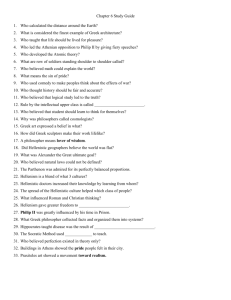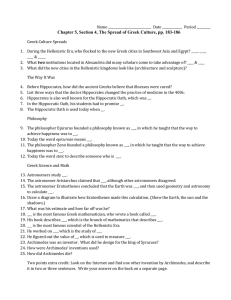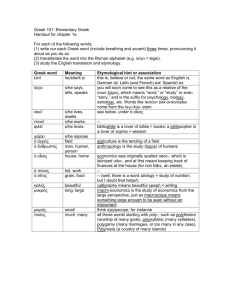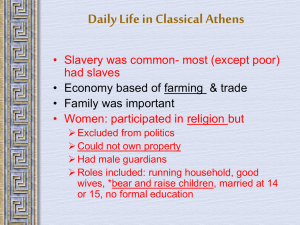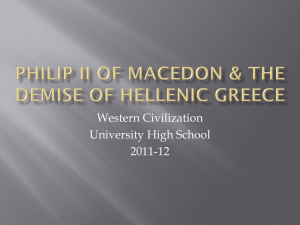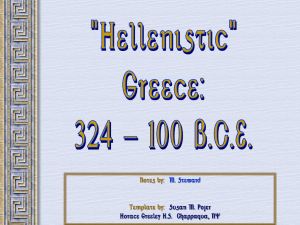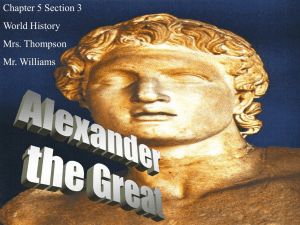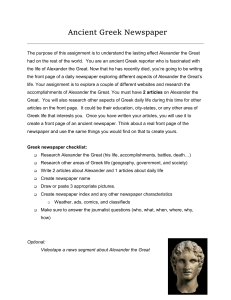Greek Civilization Reading Guide: Chapter 5
advertisement
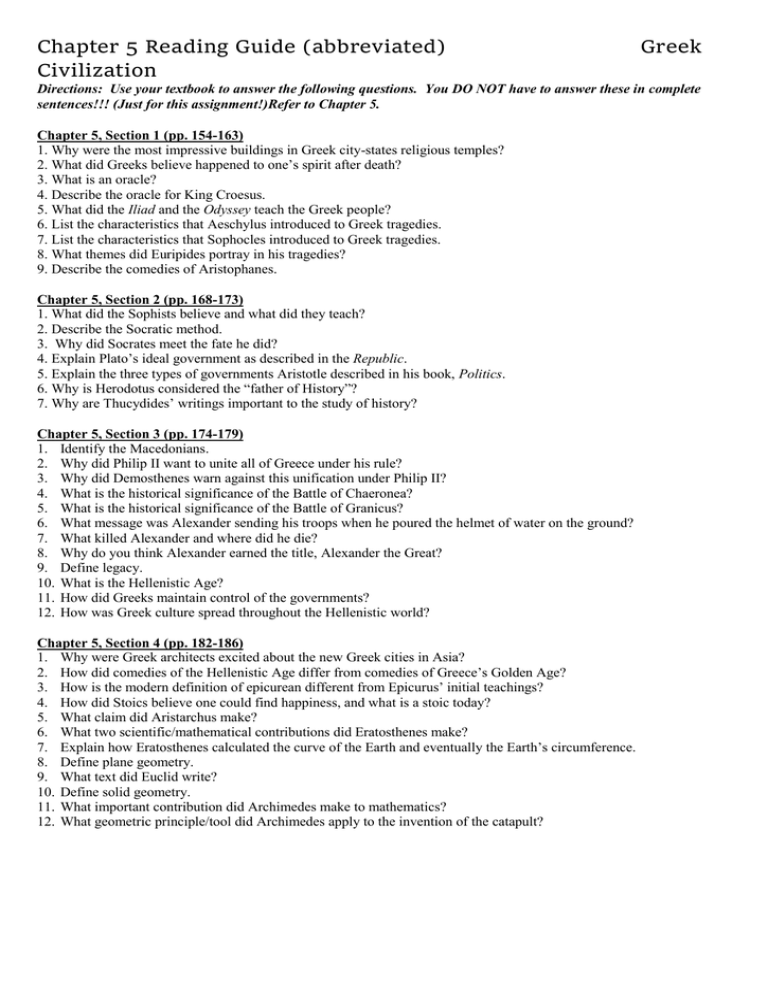
Chapter 5 Reading Guide (abbreviated) Civilization Greek Directions: Use your textbook to answer the following questions. You DO NOT have to answer these in complete sentences!!! (Just for this assignment!)Refer to Chapter 5. Chapter 5, Section 1 (pp. 154-163) 1. Why were the most impressive buildings in Greek city-states religious temples? 2. What did Greeks believe happened to one’s spirit after death? 3. What is an oracle? 4. Describe the oracle for King Croesus. 5. What did the Iliad and the Odyssey teach the Greek people? 6. List the characteristics that Aeschylus introduced to Greek tragedies. 7. List the characteristics that Sophocles introduced to Greek tragedies. 8. What themes did Euripides portray in his tragedies? 9. Describe the comedies of Aristophanes. Chapter 5, Section 2 (pp. 168-173) 1. What did the Sophists believe and what did they teach? 2. Describe the Socratic method. 3. Why did Socrates meet the fate he did? 4. Explain Plato’s ideal government as described in the Republic. 5. Explain the three types of governments Aristotle described in his book, Politics. 6. Why is Herodotus considered the “father of History”? 7. Why are Thucydides’ writings important to the study of history? Chapter 5, Section 3 (pp. 174-179) 1. Identify the Macedonians. 2. Why did Philip II want to unite all of Greece under his rule? 3. Why did Demosthenes warn against this unification under Philip II? 4. What is the historical significance of the Battle of Chaeronea? 5. What is the historical significance of the Battle of Granicus? 6. What message was Alexander sending his troops when he poured the helmet of water on the ground? 7. What killed Alexander and where did he die? 8. Why do you think Alexander earned the title, Alexander the Great? 9. Define legacy. 10. What is the Hellenistic Age? 11. How did Greeks maintain control of the governments? 12. How was Greek culture spread throughout the Hellenistic world? Chapter 5, Section 4 (pp. 182-186) 1. Why were Greek architects excited about the new Greek cities in Asia? 2. How did comedies of the Hellenistic Age differ from comedies of Greece’s Golden Age? 3. How is the modern definition of epicurean different from Epicurus’ initial teachings? 4. How did Stoics believe one could find happiness, and what is a stoic today? 5. What claim did Aristarchus make? 6. What two scientific/mathematical contributions did Eratosthenes make? 7. Explain how Eratosthenes calculated the curve of the Earth and eventually the Earth’s circumference. 8. Define plane geometry. 9. What text did Euclid write? 10. Define solid geometry. 11. What important contribution did Archimedes make to mathematics? 12. What geometric principle/tool did Archimedes apply to the invention of the catapult?
